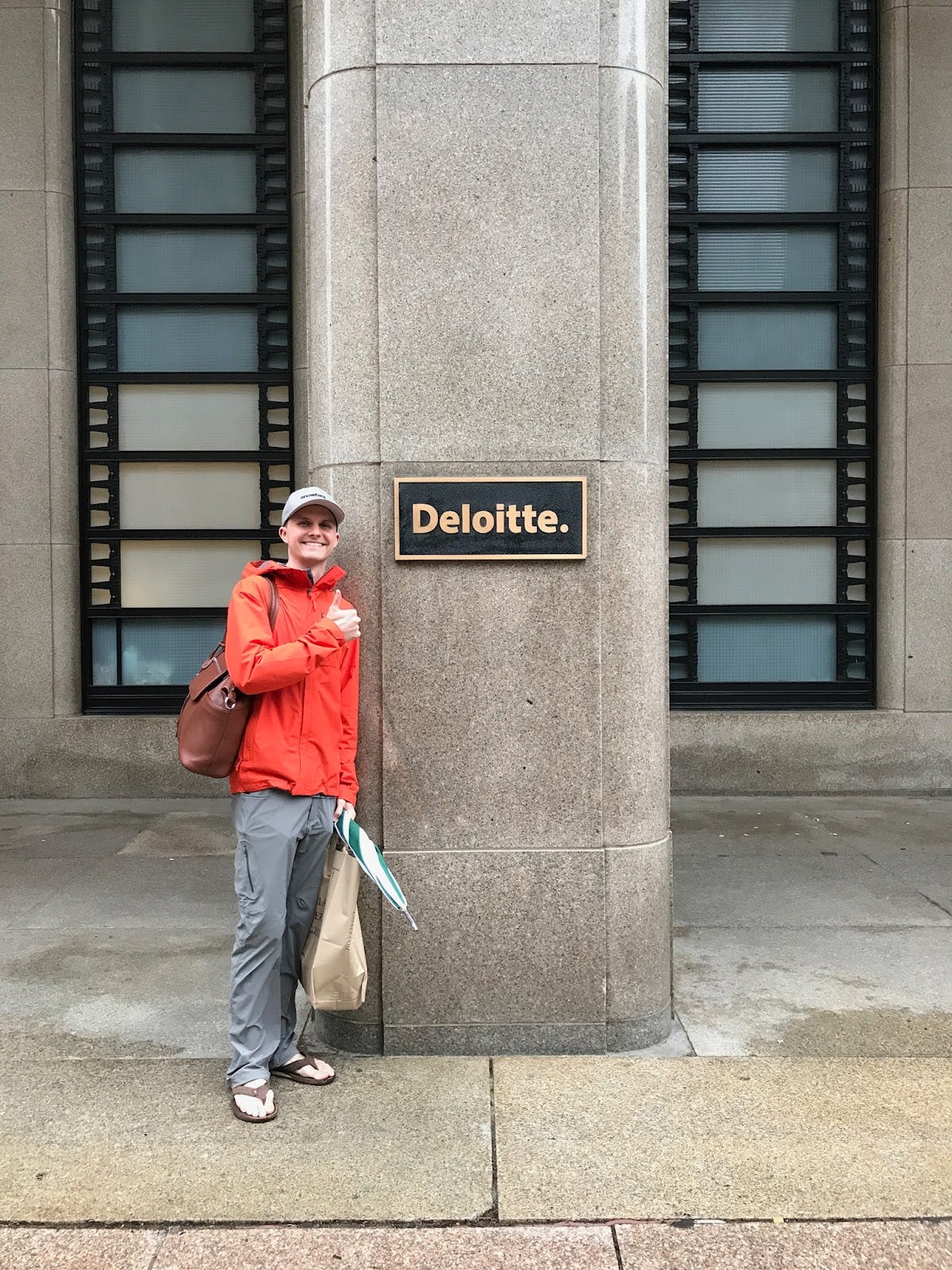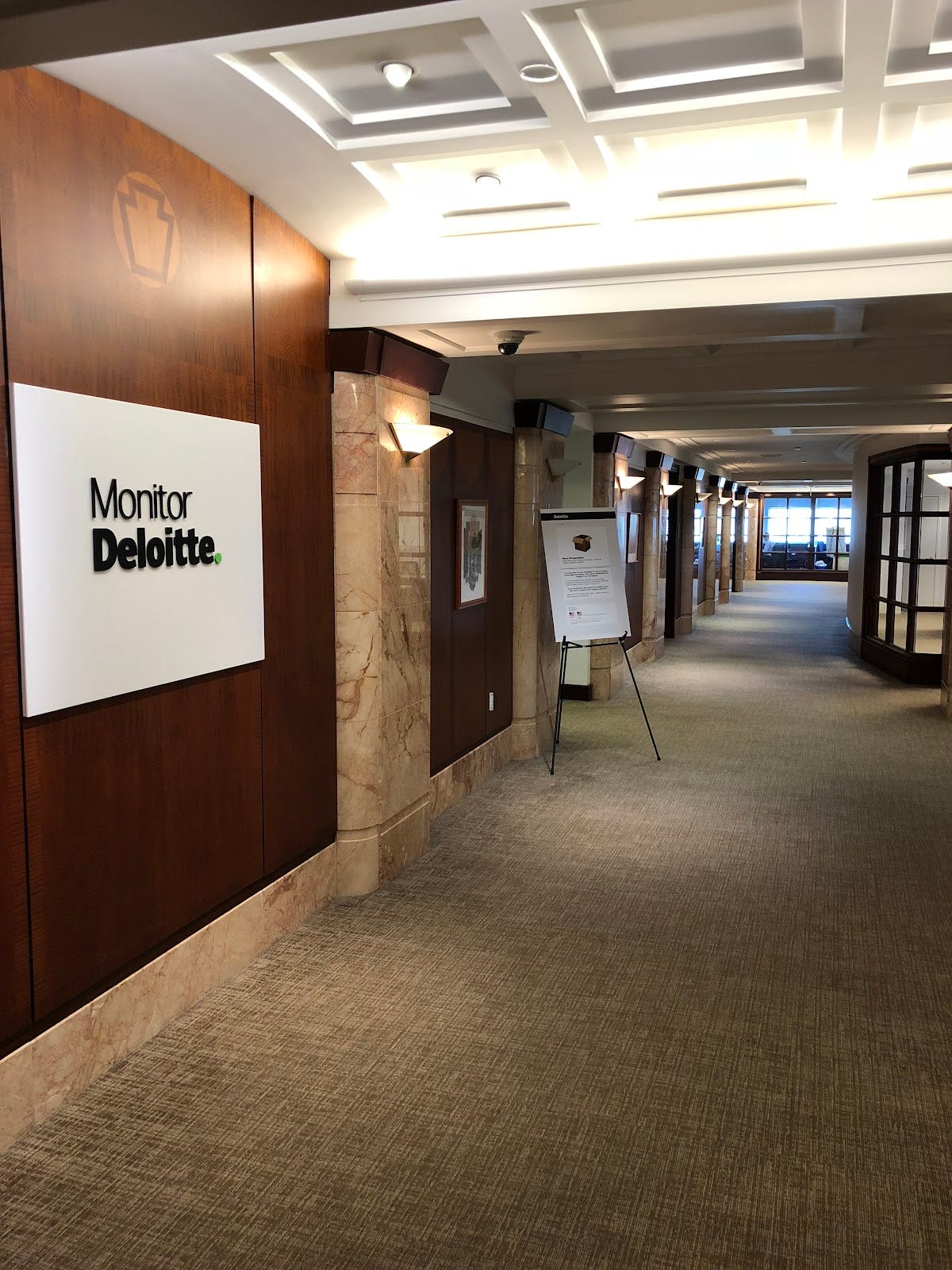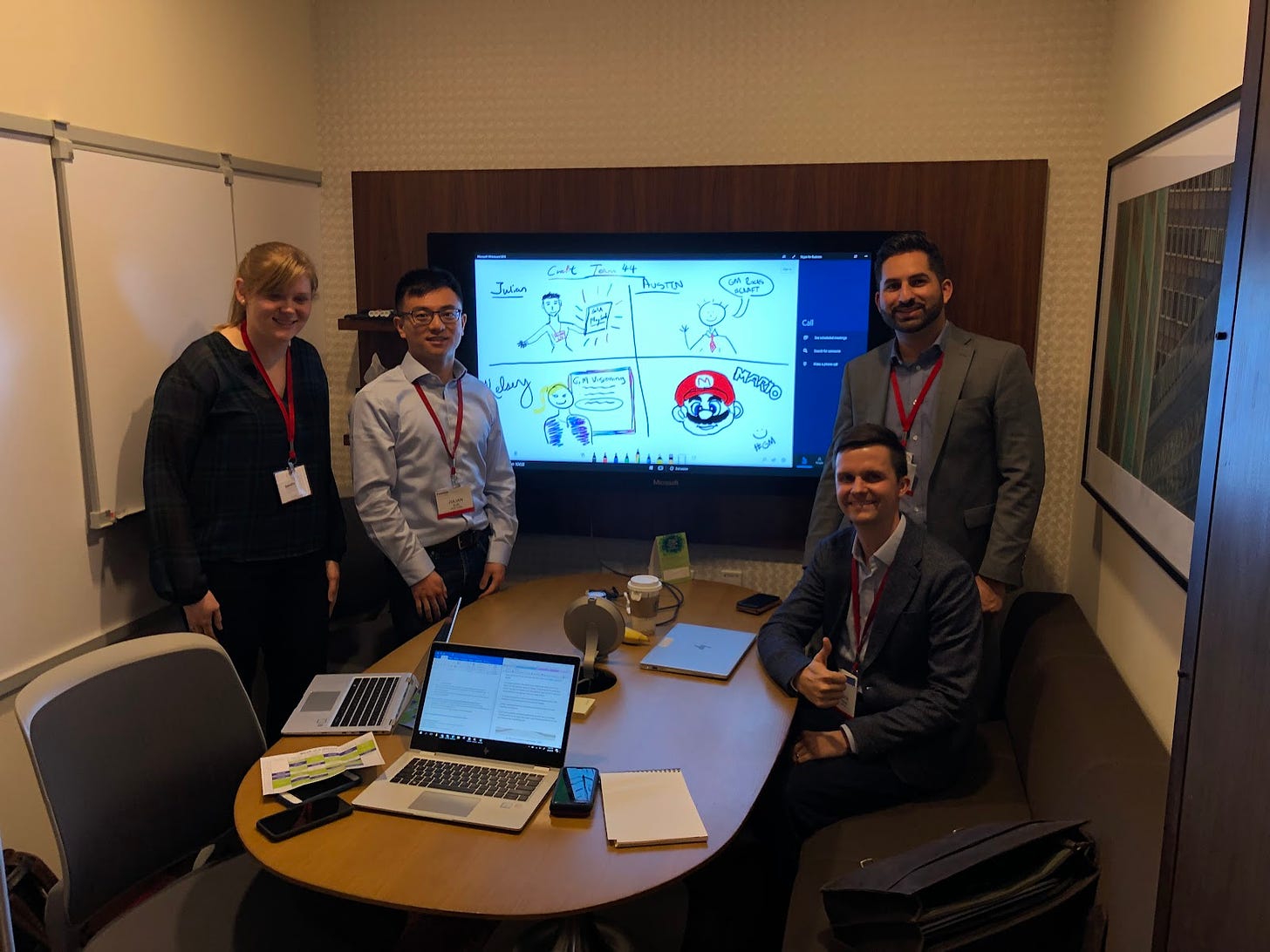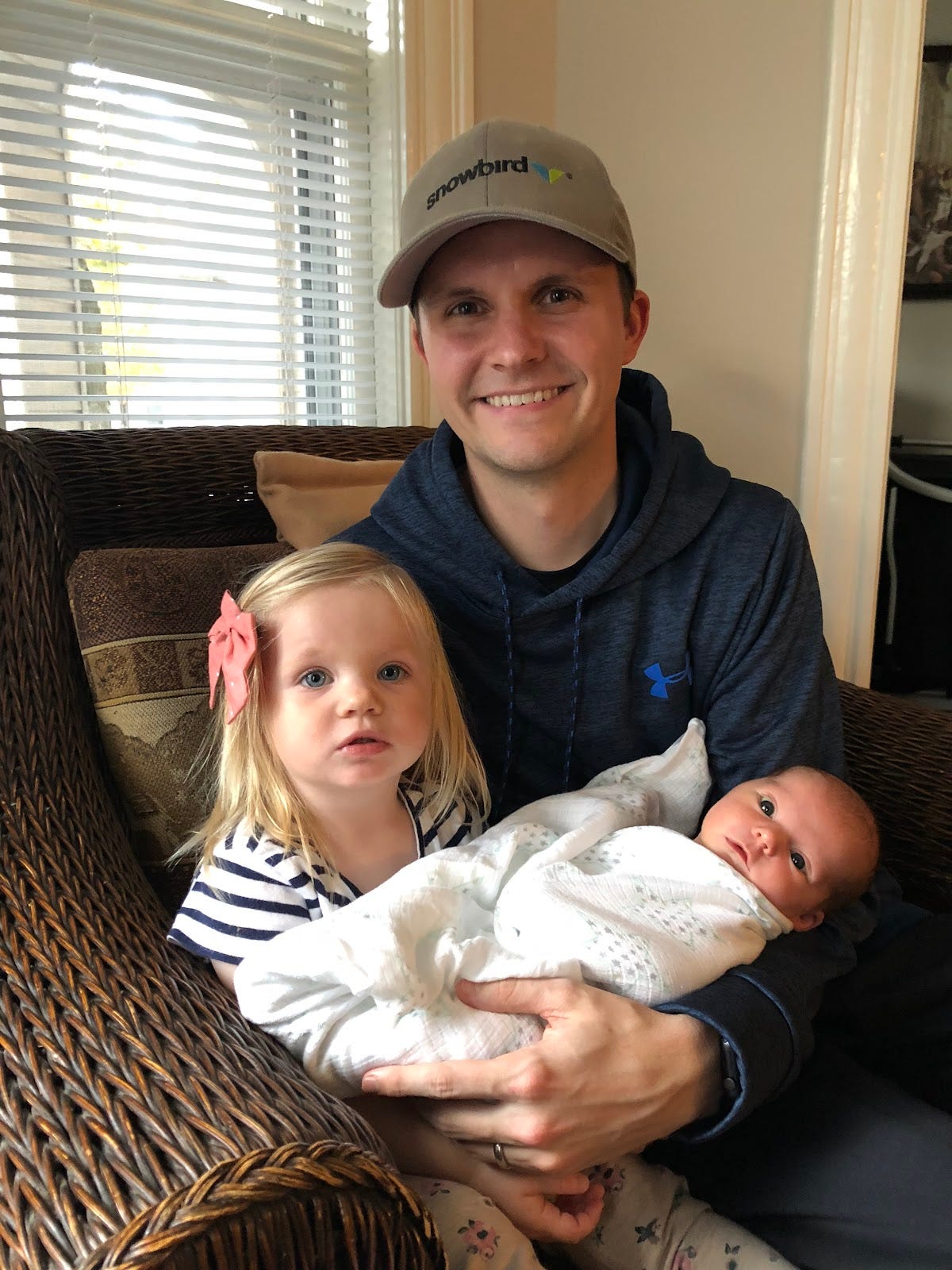When I was in the middle of my MBA program in 2018, I decided that I wanted to do something most of my peers didn’t want to do: become a management consultant.
As is the case with most MBA students I had come back to grad school to figure out what it was that I wanted to do with my career. Most of my classmates were in the same boat, and we were all struggling to really hone in on the path that we felt not only satisfied our personal curiosity and talents, but also would provide a clear map to the financial future and lifestyle most of us deeply wanted.
As I told my wife at the time: I wanted a career that actually had a real impact on the world, and didn’t just result in me owning a nice (but not great) home in a suburban neighborhood with a grill in the back. I wanted to live in exciting places with rich culture, build meaningful things that would truly shape the world, and (hopefully) make enough money to provide my family and myself with the opportunity to do things that we really cared about (for example: have a home we loved in a place that we loved, travel the world, and have time to give back to others).
Deep down I was mostly terrified of being “average”.
But I had no clue on what career would provide that kind of outcome.
I quickly discovered that this was going to be a much harder question to answer than I had originally thought. The biggest problem was that there seemed to be no end to the things I was interested in. Everything in the business world seemed intellectually stimulating. One day I wanted to be a product manager, the next a venture capitalist, and then the following week felt intrigued by marketing. The opportunities seemed endless and the FOMO (Fear of Missing Out) was very very real.
That’s when I found what seemed to be the perfect solution: Management Consulting.
Consulting had a lot of advantages that were really appealing to me. It was an opportunity to work alongside people who were both incredibly smart and very driven (the type of people that I wanted to learn from). It would allow me to get a wide exposure to different industries and functions within the business world, which I hoped would help me identify where my long term fit was. It was also prestigious – something that I felt would strengthen my resume, and truthfully, give me a sense of having “made it”.
I immediately made consulting my “deliberate strategy” for my career. Consulting was notoriously difficult to break into (with acceptance rates of less than 8% of all applicants), and I knew that without a great deal of sacrifice I wouldn’t get the role. I decided to make breaking into consulting the primary focus of my MBA experience.
I joined the Strategy & Consulting Club, spent hundreds of hours prepping for case interviews, spent another 25+ hours perfecting every element of my resume, networked with as many current and former consultants as I could to learn everything about the industry, and even was elected to be the Managing Director for a student led management consulting firm that earned revenue on behalf of the business school (a business I ran part time for 1.5 years).
I finally landed an interview with Deloitte consulting in their Strategy & Operations division. The night before my final round interviews I was so nervous that I didn’t sleep. At 2:30am in the morning I literally threw up from the anxiety and decided it was better to just get dressed and practice for my interview instead of just going back to bed.
I vividly remember getting the call from a senior Deloitte partner offering me the job a few weeks later. As a fun coincidence my first child had just been born only a few hours earlier and my wife/I were still basking in the joy of being new parents; it was easily one of the happiest days of my life.

After graduating from my MBA program in 2018 I started work for Deloitte in their Boston office. It was, at the time, the “biggest” job I had ever had, and I was determined to be successful. At first things in consulting were great. The work was exciting. My coworkers were extremely bright and willing to teach me the ropes. My family loved living in Boston, and I was getting incredible experience working with clients and senior leaders across a huge range of industries (from Silicon Valley Startups to Global Defense Contractors).

But I also began to realize that in order to be truly successful in consulting I was going to need to work harder than I ever had in my life – not only for my own learning, but also if I wanted to have any chance of growing a career in the consulting industry.
One reason for this was due to the infamous “up or out” nature of consulting firms: If you didn’t regularly get promoted every 2-3 years (the standard expectation) you were quickly “counseled out” (the industry’s euphemism for being encouraged to leave the firm). This was a weekly pressure that every consultant faced.
But the second reason was that I faced a unique disadvantage: I was an anomaly at the firm. Most of my fellow new hires had all come from prestigious Ivy League-level Schools (ex: Harvard, MIT, Duke, Dartmouth, Stanford, etc.). I was the only consultant in the Boston office to come from what was termed a “Tier 2” (aka “non prestige”) school. It immediately became apparent that there were some in the office who were surprised that someone from my background had been admitted. I still remember the barely disguised disdain from one particular fellow new hire who seemed almost annoyed that someone without his same illustrious educational pedigree had gotten the same job he had.
I was determined to not only prove these folks wrong, but outperform them.
As a result – for the next 3 years I did my best to tap into the work ethic of someone like Kobe Bryant. I regularly worked 60-70 hour weeks. My typical weekly schedule would be to wake up at 3:30am on Monday morning in order to catch an early flight to an out-of-state client state, working each day until midnight, and then rising early to be at the client site again by 7:30am. I had no time for hobbies and little time for my family aside from the precious hours I could spend with them on the weekends or during a short 30 minute call each night with my wife and children while I was away on the road.
During one particularly intense client engagement I spent over 36 hours without sleep. I was taking a team of e-commerce warehouse workers row by row through an enormous shipping facility, cleaning up and cataloging thousands of product items in an effort to help our client transform their operations from being a brick and mortar store business into an internet-based company that could compete with Amazon and other e-commerce providers. The project was so stressful that our team’s consulting partner literally had a heart attack from the stress and had to be hospitalized. Most members of the team averaged only 4 hours of sleep per night for weeks on end.
It wasn’t all bad though: I found the work to be intellectually thrilling, or at the very least, very challenging (as consultants aren’t usually hired to solve “easy” problems). My co-workers definitely pushed me to be my best and taught me excellent work habits and ways of tackling complex problems. Some of them became dear friends.
And the travel benefits were nice. I quickly became accustomed to having elite status on most airlines and hotels (fun fact: within a year I had the 2nd highest possible status on Delta (Platinum), and the airline stewards would practically roll out the red carpet when I and my team got on the flight). I paid for multiple family vacations 100% with the points I had accumulated.
Eating out with the team was another plus. We essentially had no limit on what food we could get while one the road and I was able to eat at some extremely nice places, assuming my client’s location had fine dining fare nearby, which certainly wasn’t always the case, especially when you were working in areas like Meridian Mississippi or Detroit Michigan’s outskirts.
Lastly: the firm tried its best to make us feel like we were on top of the world. For example they rented out the Texas Ranger’s baseball stadium for a team event. We felt extremely posh.


Despite the grueling schedule I began to rise in the company. I was promoted to manager a year earlier than most of my peers, and in my year end performance review senior partners at the firm told me that they had decided to place me on the “fast track” to becoming a partner (a position that could eventually see me earn a salary of close to $1M per year). The future seemed bright, and I felt proud of what I had achieved.
And that’s when I began to wonder: was this lifestyle really worth it?
The long hours were starting to take a toll on my happiness. Even with being able to work from home on Fridays (at least half the month), Saturdays were spent with chores and Sundays with attending church services. I technically lived in Boston, but increasingly felt like I didn’t even have the time to explore the city or East Coast.
Worse, I was starting to feel like I was missing out on my children’s lives. Both of my children at the time (2 girls) were only 3 and 1 years old at the time, and as anyone will tell you about young kids, they change fast. I remember coming home one week and realizing that my youngest daughter looked visibly older than when I had left only 5 days before. I was missing all the little moments and it tortured me inside.
When Sunday evening rolled around I would start to feel physically sick in my stomach knowing that I needed to start packing and was facing another 3:30am alarm, an early morning flight, and a weeklong gauntlet of high-pressure.

In January of 2020 when my wife told me she was expecting our 3rd baby, we both knew I needed to find a new job. I updated my resume and began quietly searching for / applying to new jobs that very week.The process to find an exit I was truly excited about took well over a year (I landed a role I was thrilled about in April 2021) and is something I’ve written about previously. Though I received multiple job offers in that time, I realized that for many of them their greatest virtue was that they “weren’t Deloitte”, and that simply wasn’t a good enough reason to jump ship. In retrospect I’m glad that I was so picky in choosing to “run towards something” rather than “run away from something”. It’s something that I still regularly advise anyone looking to change careers to consider.
That being said, consulting changed my life in a lot of ways.
It helped me sharpen my thinking on what kinds of industries and roles I wanted to spend the next 30+ years of my career in. It gave me an intense work ethic “muscle” that I know I can tap into when I need it. It raised my bar for what excellent work looks like.It taught me how to think outside the box, how to break chaotic problems down into manageable parts, and how to present a complex situation and solution into a compelling story that executives can buy into (all skills that have benefitted me enormously as a leader).To be frank, I’m also aware that I wouldn’t have my current role (leading strategy at a growing public tech company), a job that I absolutely love, without having paid the price of doing consulting for a few years beforehand.
Perhaps most importantly, it showed me what I truly value: my family, time to work on things that matter most to me, and being around excellent people and interesting ideas. The hardest part has been realizing how rare it is to find that combination out in the workforce.
You couldn’t pay me to go back, but it’s also something I have zero regrets in doing.


